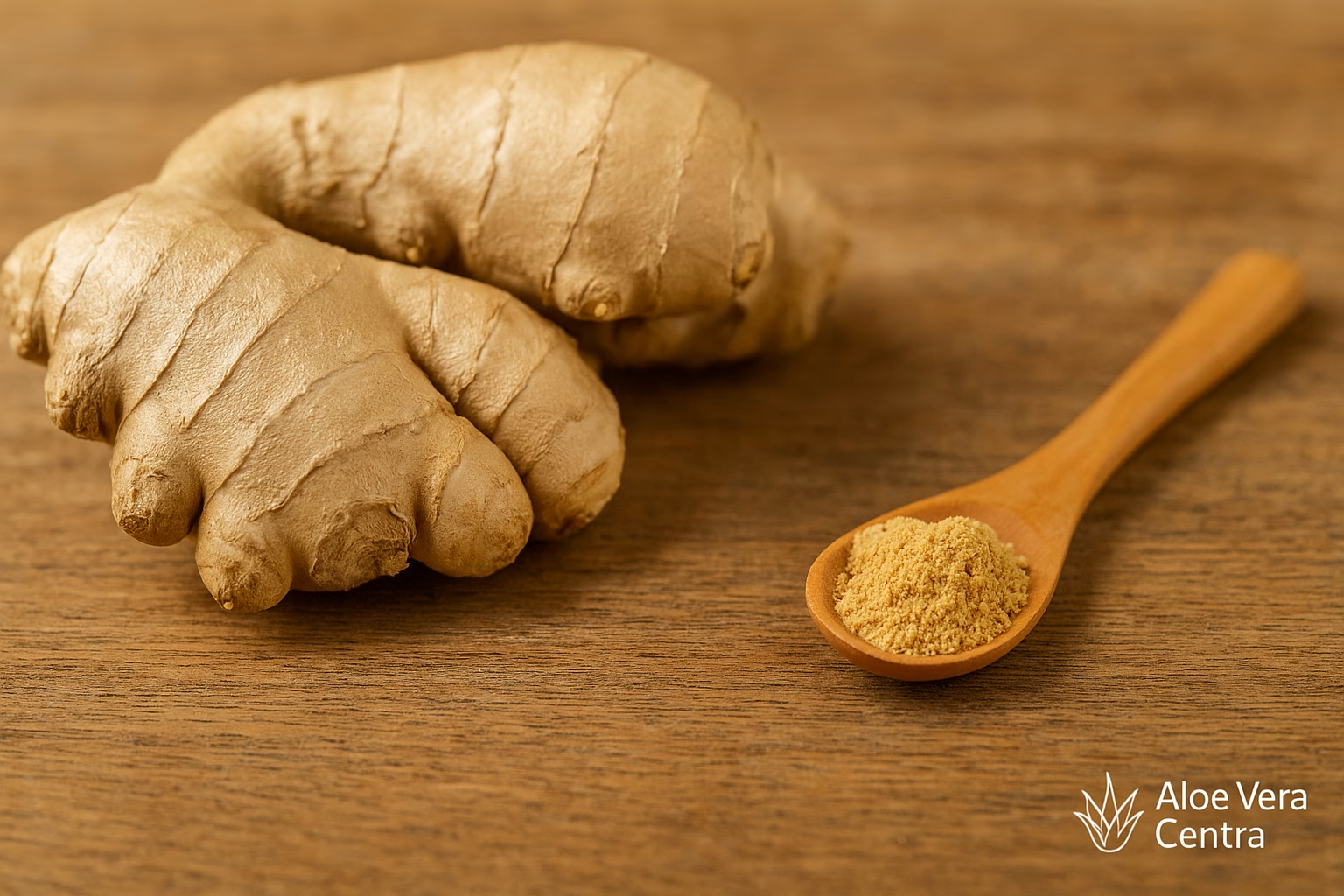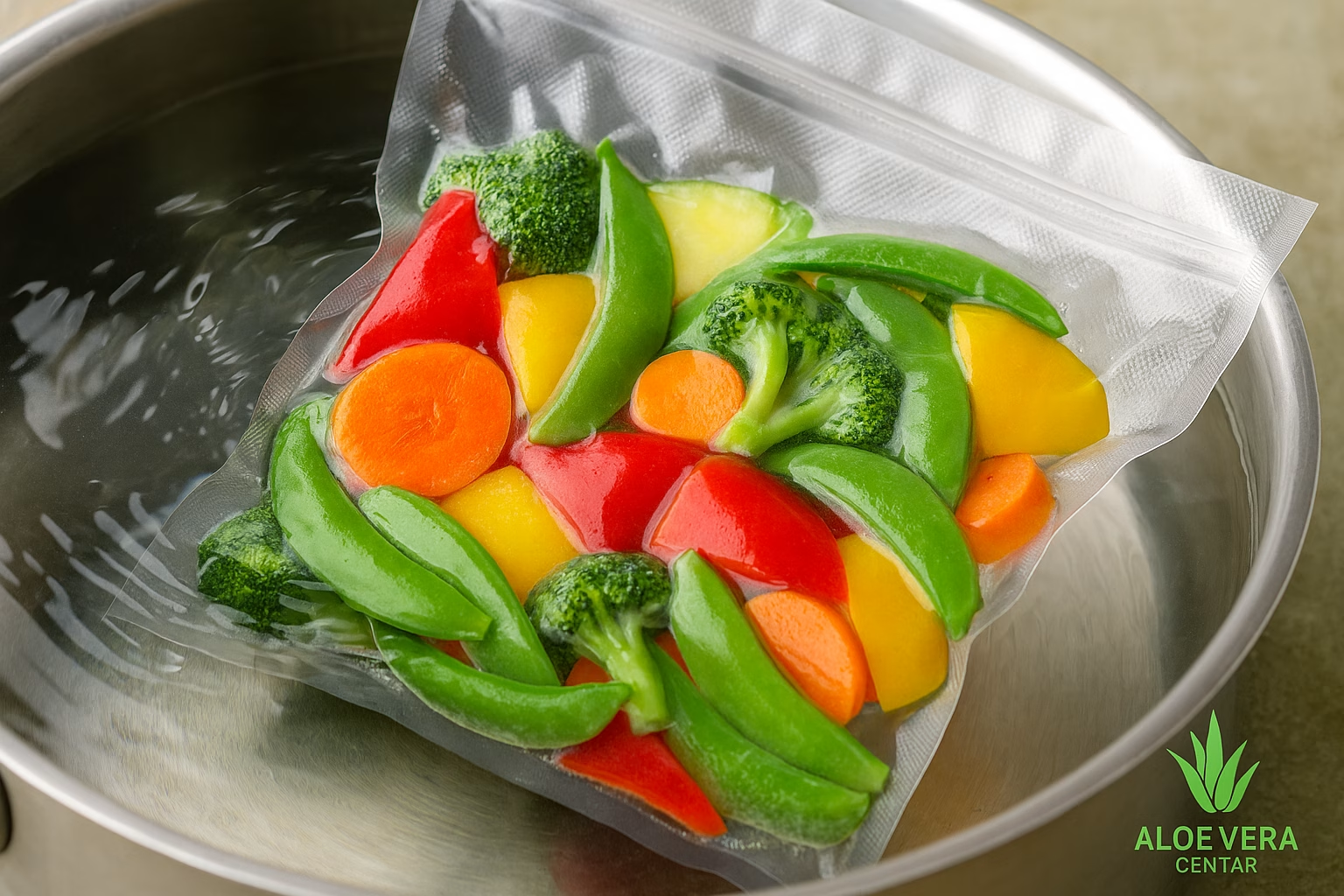
Digestion and Constipation: How Aloe Vera Juice and Fiber Can Help Intestinal Peristalsis
Digestion and constipation: how aloe vera juice and fiber affect intestinal peristalsis
Imagine how you would feel if your digestive system worked like a Swiss watch: no bloating, no painful constipation, and regular bowel movements. While this can often be a challenge in today’s busy modern life, there are natural solutions that can significantly improve your digestive health. In this article, we’ll focus on constipation and explore how aloe vera juice and fiber can help maintain normal bowel movements. We’ll also talk about practical tips, habits, and related natural supplements, including products like Forever Fiber , to help you achieve optimal digestion.
You may be wondering, “Sounds too good to be true? Why aloe vera and fiber?” Don’t worry, we’ll walk you through everything step by step – from the mechanisms behind a “sleeping gut” to how certain natural ingredients can “wake up” your digestive system. We’ll also highlight the role of hydration, exercise, and other lifestyle factors that make up a holistic approach to gut health. For those who want to further explore how to solve the problem of chronic constipation, we’ll also suggest useful links to the Aloe Vera Center , including Natural Laxative , and explain how they fit into a comprehensive strategy.
Understanding constipation and its effects on the body
Constipation is defined as difficult or infrequent bowel movements, usually less than three times a week. However, everyone has their own rhythm; some people feel uncomfortable after just one day without a bowel movement. When constipation occurs, the intestines absorb more water from the stool, making it harder and harder to pass. Over time, this can lead to bloating, uncomfortable pain, and, in more severe cases, hemorrhoids and anal fissures.
Constipation is often not just a “local” problem; excess toxins and waste that remain in the intestines for a long time can burden the entire body, with possible headaches, lack of energy and a disturbed mood. Chronic constipation further impairs the quality of life, and solutions that are limited to strong laxatives sometimes only increase the body’s dependence on them. This is where natural approaches come into play – primarily fiber , aloe vera and other herbal strategies.
The role of fiber in stimulating intestinal peristalsis
Fiber is the indigestible parts of plants that pass through our digestive system without being broken down into simple compounds. There are soluble and insoluble fibers :
- Soluble fiber absorbs water, turns into a gel, and can help slow digestion, stabilize blood sugar, and slow stomach emptying. It also serves as “food” for the good bacteria in your gut.
- Insoluble fiber increases the volume of the stool and accelerates the passage through the intestines, thus preventing constipation.
Ideally, your daily diet should include both types of fiber. Many people, however, fail to get enough fiber from food alone (vegetables, fruits, legumes, whole grains), so supplements like Forever Fiber can help. A sufficient amount of fiber acts like a “brush” in the intestines, cleaning out accumulated waste and making stool easier to pass.
But increasing fiber intake must go hand in hand with staying hydrated . If you drink too little fluid, fiber can have the opposite effect and actually make constipation worse. That’s why it’s important to gradually introduce more fiber into your diet while drinking more water.
Aloe vera juice: why does it help regulate digestion?
Aloe vera is often referred to as the “plant of immortality” in the traditions of many cultures. While the gel from the leaves is most commonly known for its topical application to the skin and burns, aloe vera juice (taken orally) has a reputation for stimulating digestion, calming inflammation, and even having a possible laxative effect, especially when consumed in sufficiently controlled quantities .
Why is aloe vera juice good for the intestines?
- Enzymes: Aloe vera contains enzymes that help break down food and thus facilitate digestion.
- Anti-inflammatory properties: Research suggests that aloe vera can soothe the intestinal mucosa and thus reduce inflammatory processes.
- Laxative effect: Some parts of aloe have a mild laxative effect that speeds up peristalsis, which helps with constipation. However, it is important to pay attention to the dosage – excessive amounts of aloe can cause a strong laxative effect and cramps.
- Hydration: Aloe vera juice provides extra fluid, which is key to softening stools.
In addition to all that, aloe vera can serve as a “nutritional support” for the complete intestinal microbiome because it stimulates the growth of beneficial bacteria. If you are wondering where to get quality and reliable juice, you can find out more in the article Aloe Vera Juice . The most important thing is to choose certified products, with a clear declaration and without unnecessary additives.
How do aloe vera and fiber work together on peristalsis?
Peristalsis is the rhythmic contraction and relaxation of the intestinal muscles that “pushes” food and waste through the digestive tract. If it is too slow, it causes blockage (constipation), and if it is too fast, it causes loose stools (diarrhea). Aloe vera and fiber can work synergistically to balance this process:
- Fiber increases the volume of stool and absorbs water, which makes it easier to move through the intestines. At the same time, a sufficiently hydrated body prevents stool from becoming too dry.
- Aloe vera juice helps to calm irritations, and can also act as a mild laxative if you consume the right amount. In addition, enzymes from aloe can help better breakdown food and even peristalsis.
- Both help to maintain a favorable microenvironment in the intestines, which is reflected in better absorption of nutrients and more regular stools.
So you have a double effect: on the one hand, the fiber provides a “physical structure” for the stool movement, and on the other hand, aloe vera provides “lubrication and soothing” to the intestines, while also mildly stimulating muscle contractions.
Comparison with other laxatives: why a natural approach?
Pharmaceutical laxatives can quickly relieve constipation, but they often have side effects such as cramps, sudden urges to go to the bathroom, or electrolyte imbalances. Some are also “irritating” to the intestinal lining, which can be addictive in the long run.
On the other hand, natural laxatives (e.g. Natural Laxative ), increased fiber intake, adequate hydration, and aloe vera juice intake have a gentler effect and encourage the body to function normally in the long term, instead of constantly “forcing” the intestines to empty. In addition, a natural approach often brings additional benefits, such as better intestinal flora and regulation of other digestive problems.
Of course, if constipation lasts for a long time and is accompanied by severe pain, bleeding, or other alarming symptoms, you should consult a doctor. However, for chronic and milder conditions, the “first line” of defense is often modifying your diet, increasing your fiber intake, and regularly consuming aloe vera.
Practical advice for the successful integration of aloe juice and fiber into the diet
To truly harness the power of aloe vera juice and fiber in fighting constipation, you need to make some changes to your daily habits:
- Increase your fiber intake slowly: If you haven’t been eating much fiber before, a sudden increase can cause bloating or temporary cramps. Increase your intake of whole grains, fresh fruits, and vegetables gradually.
- Drink enough water: Without water, fiber can have the opposite effect and increase constipation. 1.5 – 2 liters of water per day is recommended, but adjust this to your lifestyle and activity level.
- Enjoy aloe vera juice: The most common recommendation is around 50-100 ml per day, but the dosage varies depending on the product and individual needs. If you notice that it causes diarrhea, reduce the amount.
- Daily activity: Physical activity such as walking, yoga, or light exercise stimulates intestinal peristalsis. If you sit most of the day, try to incorporate short breaks for exercise every hour.
- Mealtime regularity: Try to eat at about the same time every day. The intestines like routine; this helps “teach” the digestive tract to empty regularly.
- Avoid overdoing it with laxative teas: They can irritate the mucous membranes. Focus on gentle, long-term solutions: aloe vera, quality fiber, and hydration.
If you follow these guidelines, you will most likely see an improvement in your bowel regularity and overall feeling of abdominal comfort within a few days to a week or two.
Can stress affect constipation, despite the fiber and aloe vera intake?
Absolutely. Stress has a dramatic effect on the gut, often through the “brain-gut” mechanism. When we are stressed, the body goes into “fight or flight” mode, reducing blood flow to the digestive system. This slows down peristalsis, and the intestines can “close up.” If your life circumstances are fraught with stress and anxiety, simply adding aloe vera and fiber won’t always solve the problem.
So, in addition to your digestive routine, work on stress management : meditation, breathing exercises, socializing, and physical activity can work in synergy with aloe vera and fiber to bring better results. If you notice long-term problems, recognize the signs of stress triggers, try to improve your sleep quality, or seek professional help.
Related products and tips
On the Aloe Vera Center page, you can find a lot of advice and products that target the healthy functioning of digestion. Some of them are:
- Aloe Vera Juice – Different varieties of aloe juice for hydration and digestion.
- Forever Fiber – A convenient fiber package that is easy to add to a smoothie or water.
- Natural Laxative – Article and tips on herbal preparations that can safely help with constipation.
- Products and articles on healthy eating that support regular bowel function and balanced intestinal flora.
If you want even more detailed information or a personalized approach, you can use our AI advisor , which can suggest specific products and a diet plan based on your habits and goals. In addition, you can get a 15% discount when ordering, which is a good incentive to start a new, healthier lifestyle.
How do you know if you need more fiber and aloe vera?
It can sometimes be difficult to tell if you are a candidate for increasing your aloe vera and fiber intake. Here are some common signs:
- Frequent episodes of constipation: If it is normal for you to have a bowel movement only once every 2-3 days or even less often.
- Chronic bloating and abdominal discomfort: Accumulated gas and hard stools often indicate poor peristalsis.
- Dry stools and straining: A sign that you may not be getting enough fluids and fiber.
- Lack of energy and fatigue: Poor digestion also means poorer absorption of nutrients, which can result in a lack of energy.
- Desires for sweet or fast food: Sometimes an unbalanced diet leads to a lack of fiber and an imbalance of intestinal flora, which causes “wrong” cravings and further worsens constipation.
If you recognize at least 2-3 of these symptoms, aloe vera and fiber supplements could probably make your daily life significantly easier. Of course, always take care of other aspects of a healthy routine – enough sleep, reducing stress and moderate exercise.
Additional measures for regular peristalsis and healthy digestion
Incorporating Aloe Vera juice and fiber into your diet is a very good step, but optimal gut health often requires the following:
- Regular physical activity: Movement and light exercises (e.g. walking, yoga) stimulate the intestines to work.
- Relaxation and stress reduction: Stress slows digestion and leads to constipation. Breathing techniques, meditation or massage can improve autonomic bowel regulation.
- Hot drinks: For some people, hot water, tea, or soup in the morning can “wake up” digestion and make bowel movements easier.
- A diet rich in fermented foods: Sauerkraut, kefir, or yogurt with active cultures can help your gut flora.
- Fewer processed products: Fast food, fast sugars and alcohol can further impair intestinal peristalsis.
These are not strict rules, but guidelines. Each person has a unique metabolism and intestinal rhythm, so it’s important to adapt them to yourself and your own pace of life.
Menu examples to encourage regular bowel movements
As an inspiration, here is what a day of a balanced diet combining aloe vera juice and fiber could look like:
- Breakfast (7:30) :
- Oatmeal (whole grain oatmeal) with flax seeds, berries and cinnamon
- A glass of lukewarm water or herbal tea immediately upon waking
- 60 ml of aloe vera juice after a meal or diluted in a glass of water
- Snack (10:30) :
- A handful of almonds or walnuts
- A glass of water with Forever Fiber added
- Lunch (1:00 PM) :
- Whole grain rice or quinoa with lentils and vegetables (carrots, peppers, zucchini), seasoned with olive oil
- A bowl of green salad (arugula, spinach, tomato) with lemon juice
- Water or unsweetened herbal drink
- Afternoon snack (4:30 PM) :
- Fruit smoothie (apple, pear, some spinach) to which you can add a teaspoon of ground flax seeds
- If necessary, another small dose of aloe vera juice
- Dinner (19:00) :
- Steamed Brussels sprouts or broccoli with chicken/tempeh, drizzled with olive oil
- A slice of wholemeal bread (optional)
- Water or herbal tea
- Before bed (10:00 PM) :
- Warm water with a few drops of lemon or mild herbal tea (e.g. chamomile)
You can, of course, adjust this schedule to your preferences and needs. The idea is to evenly distribute your fiber, hydration, and aloe vera intake, not overdoing it at one meal, but rather providing a boost to your bowels throughout the day.
Frequently asked questions
1. How long does it take to see results after including aloe vera and more fiber?
You may notice a difference after just a few days, but it’s common for regular bowel movements and improved digestion to occur within 1-2 weeks. It’s important to be consistent and not give up too quickly.
2. Can I take aloe vera juice with other medications?
Aloe vera juice is generally safe, but if you are taking medications (such as for thyroid or diabetes), talk to your doctor as aloe may interfere with their absorption. Too much juice can have a strong laxative effect and disrupt electrolyte balance.
3. Can children use aloe vera juice and fiber supplements?
Children usually have no problems with dietary fiber, but if your child has difficulty with stool, consult your pediatrician first. Some low-dose aloe and fiber preparations can be used by children, but only under professional supervision.
4. Is “excess fiber” possible?
Yes, excessive fiber intake (without enough water) can lead to bloating and even more constipation. So the key is moderation and increasing your water intake in parallel with increasing fiber intake.
Conclusion
Indigestion and constipation are not problems that we should ignore because they significantly affect the quality of life. Fortunately, natural solutions like aloe vera juice and fiber supplements can be powerful allies in getting your bowels back to “normal.” Integrating small but important changes (like more fluid intake, increased fiber, and aloe) often yields surprisingly quick results, while persistence over the long term brings lasting benefits to the entire body.
If you want to explore topics like natural constipation relief even further, be sure to check out the Natural Laxative article for additional tips and product recommendations. For a personalized approach and a 15% discount on your order of products that interest you, use our AI advisor . Don’t forget – healthy digestion starts with small steps that you can take today. Your gut and your entire body will surely thank you!
Disclaimer: This article is not a substitute for professional medical advice. For persistent or severe digestive and constipation issues, please consult a doctor or nutritionist for an individualized plan.








